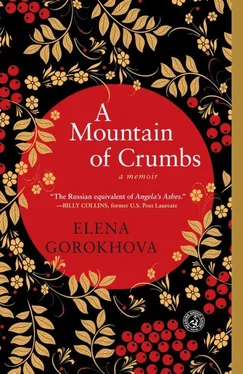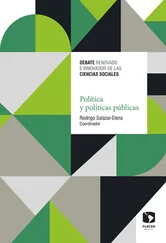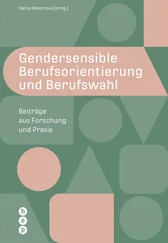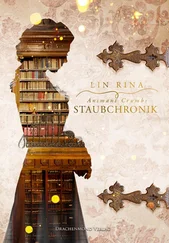My suitcase is by the door; everything is ready. We awkwardly stand in the hallway, not knowing what to do.
“Well, let’s go,” says my mother.
“Where are you going without sitting down first?” snaps Marina. A superstition for a safe trip and the hope that a person who is leaving will return: everyone sits down for a minute, silently; the youngest gets up first.
My mother, Marina, and I sit on the couch in Marina’s room, Gris on the corner of the chair in front of the desk. My mother looks at me; Marina, with stage concentration, gazes at the flowers on the table; Gris stares at the floor. An ambulance—or a militia car—wails in the distance, the siren growing louder as it screeches around the turn and races past our windows.
Marina motions for me to get up. We crowd in the hallway, our shoulders bumping, keys clanging, doors swaying open. A meaningless commotion, a spurt of last-minute chaos.
Gris lifts my suitcase and carries it out to the elevator.
In the courtyard, where children from my old nursery school are playing in the sandbox, I look up at the square of the sky, at the fleet of burly white clouds casting a temporary shadow. A girl with two skinny braids stops her sandbox digging and gazes at the circle of the sun glowing through the cotton cloud.
Gris loads my suitcase into the trunk and opens the car doors for us. My mother, as the oldest, sits in the front. Gris slowly drives past the playground and pulls through the courtyard archway into the street.
With one hand on the wheel, he weaves around trolleys and trucks in the unmarked width of Moskovsky Prospekt. People line up at the bus stops, emerge from grocery stores, their arms weighed down by string bags. Children hold their parents’ hands on their way to libraries and piano lessons. A usual Tuesday afternoon.
The massive buildings lining the avenue change to matchbox apartment complexes and then to barren fields dotted with commercial hothouses. “Summer,” a big sign reads, the name of a vegetable factory that occasionally produces lines of people waiting for watery cucumbers and stalks of yellow dill. When the sign fades in the distance, the road swerves to the right, where the international wing of Pulkovo Airport looms on the horizon.
Nina is already there to see me off, a fan of customs declarations in her hands. I fill in the required items to declare: a gold wedding band, the silver bracelet I received from the British boy Kevin when I worked as a tour guide in the ninth grade, a bank exchange receipt for one hundred and thirty dollars. The international terminal is dark and cramped, a small wing walled off for a few foreign flights. I squint at the customs declaration, trying to make out the tiny letters that warn me against exporting rubles, precious metals, and works of art.
“Check-in begins for a flight to Moscow to connect with flight number 37 to Washington,” a voice drones from a loudspeaker, muffled as if underwater. Since the invasion of Afghanistan, Aeroflot hasn’t been allowed to land in New York, so Robert said he would borrow a car from his friend, the same friend who lent him the wedding suit, and drive to Washington to meet me. “The passengers are asked to clear customs at this time.”
“Already?” asks Mama and looks around, her usual pre-departure surveying glance, as if we were surrounded by scores of string bags. “It’s still so early …”
“Well, you better go,” says Marina. “Who knows how long it’ll take those bastards to nose through your suitcase.”
Gris lifts my bag and wraps his arm around me, pressing his cheek to my ear. “ Schastlivo, ” he says, releasing his embrace and winking. “Good luck to you. Find out how everything is there, really.”
A Spanish student who is part of a visiting tour, his size doubled by his backpack, sideswipes Marina as she hugs me, and this jolt pulses through to me in a tighter embrace, in a firmer kiss. I press my face into her hair, which glows under the light, the color of the apricot jam she once brought from a theater tour of Armenia. “Write to us,” she says.
I look at Mama’s crumpled face and catch her gaze, open, like a fresh wound. She steps forward and I snuggle into her wet cheek. She smells of kitchen and mushrooms, the same familiar smell as years ago, when I got lost in the woods on a mushroom hunt, when the crunch of her footsteps led me to the safety of her embrace.
“Pishi,” she whispers, “promise to write often.” New tears swell in her eyes and spill over. “Are you sure you have everything?” she asks, swallowing and blinking. “Did you take the scarf I left out for you?” She swipes a finger under her eyes, folds her hot hands around mine, and I feel something small and heavy drop into my palm. “Take this with you. It’s your grandma’s watch, solid gold, French. They don’t make them anymore.”
I know that the law prohibits taking out of the country anything made before 1957, anything made in a foreign country, anything made of gold. But at this moment the law is as irrelevant as the visiting students with their machine-gun Spanish. I hold the watch in my palm, then drop it in the pocket of my jeans.
“We’ll come to visit you,” says Gris. “First we’ll send Mama, as soon as she’s done with the dacha and her apple jams. Then Marina will be next, and then we’ll all be there and you won’t know how to get rid of us.”
“Yeah,” I say and give Mama a smile. “I’ll start the paperwork as soon as I land.”
The current of the student group picks me up and carries me to the glass door, the border demarcation between us and the rest of the world. Behind it, in an automatic movement, a customs official in a gray uniform begins to riffle through my bag. I recognize him from my senior-year university lectures. He unwraps my bottles of perfume, one by one, lifts them up to the light, and stares at their contents. He opens my wallet and counts my money. He thumbs through the pages of my address book. A university graduate rummaging through luggage. He doesn’t recognize me, or pretends not to. Feeling the metal of the watch on my thigh, I look into his eyes, the deadened KGB eyes that can still, as long as I am in the international airport zone, drill right through my untrustworthy head, accuse me of being unpatriotic and delinquent, and order me to stay here. We stare at each other until he looks away—a philologist of Germanic languages busy analyzing underwear and socks—and pushes my violated suitcase off the belt.
When I finish repacking, I look back, at all of them clustered together before the glass door. Nina waves vigorously over my mother’s head. Gris stands next to her, his cap pushed over his forehead, his hands in his pockets. Marina is trying to shove in front of the guard, squeezing him out with her shoulder. I can only see a part of Mama, a small fragment of her face, her hand with a handkerchief blotting her eye.
If my father were alive, would he be standing next to her, waving me good-bye, reassuring me I won’t end up under a bridge? Or would he be fuming at a friend’s dacha, angry at my leaving, doing what he did when I was born? He was as stubborn as a goat, according to my mother, just like I am. I think of the dream I had about him when I was eight, in which he sat in his rowboat and spoke about theater, about the audience holding their breath and growing silent the moment before the curtain is about to go up. The anticipation of magic, he called it, the expectation of illusion. The moment when the noise stops. The moment you’re no longer ordinary.
I wonder whether in real life he knew anything about magic. Could he have recognized that moment, my unknown father?
Can I?
“Walk forward, let’s go,” commands a border patrolwoman, pushing me toward a metal detector that doesn’t work. But we have to pretend it does, and I obediently step through the metal arch, benevolently silent. When I am done, the border woman turns to the two British-looking ladies in pantsuits, explaining to them with her hands that they must pretend, too.
Читать дальше












